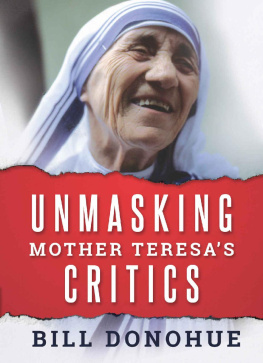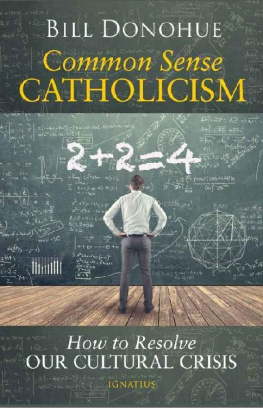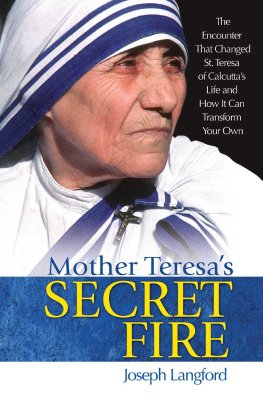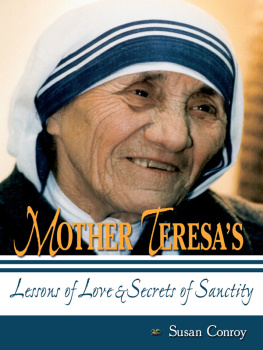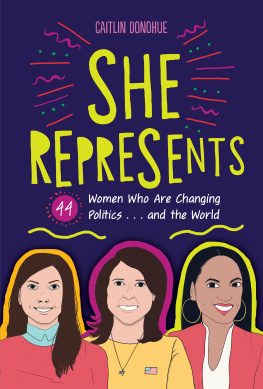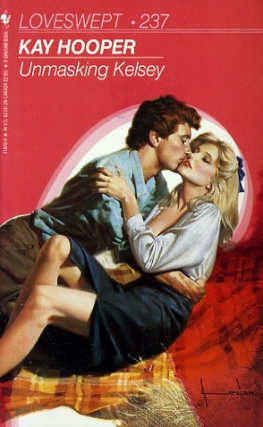Bill Donohue - Unmasking Mother Teresas Critics
Here you can read online Bill Donohue - Unmasking Mother Teresas Critics full text of the book (entire story) in english for free. Download pdf and epub, get meaning, cover and reviews about this ebook. year: 2016, publisher: Sophia Institute Press, genre: Art. Description of the work, (preface) as well as reviews are available. Best literature library LitArk.com created for fans of good reading and offers a wide selection of genres:
Romance novel
Science fiction
Adventure
Detective
Science
History
Home and family
Prose
Art
Politics
Computer
Non-fiction
Religion
Business
Children
Humor
Choose a favorite category and find really read worthwhile books. Enjoy immersion in the world of imagination, feel the emotions of the characters or learn something new for yourself, make an fascinating discovery.
- Book:Unmasking Mother Teresas Critics
- Author:
- Publisher:Sophia Institute Press
- Genre:
- Year:2016
- Rating:4 / 5
- Favourites:Add to favourites
- Your mark:
- 80
- 1
- 2
- 3
- 4
- 5
Unmasking Mother Teresas Critics: summary, description and annotation
We offer to read an annotation, description, summary or preface (depends on what the author of the book "Unmasking Mother Teresas Critics" wrote himself). If you haven't found the necessary information about the book — write in the comments, we will try to find it.
Unmasking Mother Teresas Critics — read online for free the complete book (whole text) full work
Below is the text of the book, divided by pages. System saving the place of the last page read, allows you to conveniently read the book "Unmasking Mother Teresas Critics" online for free, without having to search again every time where you left off. Put a bookmark, and you can go to the page where you finished reading at any time.
Font size:
Interval:
Bookmark:
Bill Donohue
Unmasking
Mother Teresas
Critics
SOPHIA INSTITUTE PRESS
Manchester, New Hampshire
Copyright 2016 by Bill Donohue
Cover design by Coronation Media in collaboration with Perceptions Design Studio.
On the cover: Mother Teresa by Manfredo Ferrari, licensed under the Creative Commons Attribution-Share Alike 4.0 International license, commons.wikimedia.org.
No part of this book may be reproduced, stored in a retrieval system, or transmitted in any form, or by any means, electronic, mechanical, photocopying, or otherwise, without the prior written permission of the publisher, except by a reviewer, who may quote brief passages in a review.
Sophia Institute Press
Box 5284, Manchester, NH 03108
1-800-888-9344
SophiaInstitute.com
Sophia Institute Press is a registered trademark of Sophia Institute.
Library of Congress Cataloging-in-Publication Data
Names: Donohue, William A., 1947- author.
Title: Unmasking Mother Teresas critics / Bill Donohue.
Description: Manchester, New Hampshire : Sophia Institute Press, 2016. |
Includes bibliographical references.
Identifiers: LCCN 2016023106 | ISBN 9781622823758 (pbk. : alk. paper)ePub ISBN 9781622823765
Subjects: LCSH: Teresa, Mother, 1910-1997.
Classification: LCC BX4406.5.Z8 D66 2016 | DDC 271/.97dc23 LC record available at https://lccn.loc.gov/2016023106
For Donald Cardinal Wuerl
Contents
Acknowledgments
My love for Mother Teresa grew considerably while researching and writing this book. Conversely, my displeasure with her most famous critics grew commensurately: their dishonesty is appalling. It is one thing to point out her shortcomings, quite another to misrepresent her work and disparage her efforts. After reading their failed accounts, I am convinced more than ever that Mother Teresa is a role model for the entire human race.
I would like to thank Charlie McKinney, president of Sophia Institute Press, for his strong interest in this book. Nora Malone, my editor, is as easy to work with as she is competent.
Many thanks to Bernadette Brady-Egan, vice president of the Catholic League, for her encouragement. Rick Hinshaw, the director of communications, helped to edit the volume, as did two policy analysts, Katelynn Bernhardi and Don Lauer. Their commitment and goodwill is very much appreciated.
Finally, I would like to thank my family, Valerie, Caryn, Paul, Caitlin, and Tara for their steady support.
Introduction
Father Brian Kolodiejchuk, a priest in the Missionaries of Charity, was delighted when the Vatican announced that Mother Teresa would be canonized; he is her postulator, the priest who took up her cause for sainthood. Ive been working on it for 17 years, he said, since 1999, so theres a sense of coming to a happy conclusion. Pope John Paul II beatified Mother Teresa in 2003.
Father Kolodiejchuk was not the only person who was happy with the news: Mother Teresa is beloved by hundreds of millions all over the world, drawing the affection of those of many religions and even those who have no religious affiliation. But as we shall see, even someone of Mother Teresas towering stature is not universally loved. Her critics will be given due consideration and evaluation.
The Vatican takes the cause of sainthood seriously. With regard to Mother Teresa, the inquiry collected thirty-five thousand pages of documentation and testimony and interviewed many witnesses; the probe took two years to complete. The investigation also established a twelve-member episcopal team, known as devils advocates, whose purpose was to challenge the claims of those lobbying for sainthood. Even Mother Teresas most notorious critic, Christopher Hitchens, was summoned for testimony.
By blood, I am Albanian. By citizenship, an Indian. By faith, I am a Catholic nun. As to my calling, I belong to the world. As to my heart, I belong entirely to the Heart of Jesus. The future St. Teresa of Kolkata (formerly Calcutta), was not boasting, only telling the truth.
Born in Skopje (now part of Macedonia) on August 26, 1910, Agnes Gonxha Bojaxhiu (the future Mother Teresa) left home at the age of eighteen to join the Institute of the Blessed Virgin Mary, known in Ireland as the Sisters of Loreto; they had a community in India. She took the name Sister Mary Teresa, after St. Thrse of Lisieux. She didnt stay long before leaving for India, arriving in Calcutta on January 6, 1929.
In 1946, Mother Teresa experienced what she said was a call within a call, an inspiration to leave the Loreto convent and dedicate herself to the poor and the dying. After moving to the slums, she received permission from the Vatican in 1950 to found the Missionaries of Charity. From then on she would commit herself to the poorest of the poor.
She started with only thirteen members, yet as early as 1952 she opened the first Home for the Dying, one of her signature achievements. The nuns acquired medical care for the sick and offered comfort to the dying. Next she focused on those suffering from leprosy. Then she turned her attention to children, opening a home for orphans and the homeless; she named it Nirmala Shishu Bhavan (the Childrens Home of the Immaculate Heart). Over time, hospices were founded in many nations, servicing the dispossessed and outcasts.
Edward Pentin, Mother Teresa to Be Canonized on Sept. 4, National Catholic Register , April 316, 2016. Mother Teresa of Calcutta (19101997), http://www.vatican.va/. Ibid.Chapter 1
Discovering Mother Teresa
Mother Teresa was a humble person who never sought the limelight. That being so, how did she come to the attention of the world? The credit goes to Malcolm Muggeridge.
Muggeridge was a British journalist who was well known to his countrymen for his writings and TV appearances. He was an independent-minded agnostic who opposed both contraception and abortion. In the 1920s, he took an assignment to India and eventually converted: he first became an Anglican and then in 1982 became a Catholic.
In 1968, Muggeridges boss at the BBC asked him to interview an Indian nun who was visiting in London. Kathryn Spink, one of Mother Teresas biographers, described how it went:
Mother Teresa was very nervous in front of the camera and somewhat halting in speech. The interview was technically a disaster, so much so that the producers doubted for a while whether it was good enough for showing at all, except perhaps late at night.When the interview aired on a Sunday evening, the reaction was astonishing. Muggeridge was particularly impressed; he knew he had latched on to someone wholly unique. This woman spoke to me as no one ever has, and I feel I must help her, he said. But it wasnt just the TV ratings that soared letters and contributions came pouring in from all over the United Kingdom.
Muggeridge was determined to follow up on his discovery, and in 1969 he succeeded in getting Mother Teresa to sit down for a documentary, Something Beautiful for God (named after a book that Muggeridge wrote about her). He knew Calcutta well, but did not know what to expect when he arrived. He visited the Home for the Dying. The home was overflowing with love, he observed, and the love was luminous. Gods invisible omnipresent love. A miracle. This event had a dramatic effect on his life; it eventually led to his conversion to Catholicism.
Kathryn Spink, Mother Teresa: An Authorized Biography (New York: HarperOne, 2011), 126. Ibid., 12627. Ibid., 165.Chapter 2
Mother Teresas Critics Emerge
Although Muggeridge introduced Mother Teresas yeoman work to the world in the late 1960s, it was not until the 1990s that anyone seriously sought to challenge her reputation. Dr. Aroup Chatterjee was among the first to do so.
In February of 1993, Chatterjee asked for a meeting with officials from Bandung Productions, a film company owned by Tariq Ali, a writer and broadcaster in England. Chatterjee wanted to discuss his interest in doing a documentary on Mother Teresa. Perturbed by the perception that his hometown of Calcutta was known only for its horrible conditions and its surplus of homeless persons a perception he attributed to Mother Teresa he sought to alter that view. He eventually wrote a critical book about Mother Teresa, The Final Verdict .
Next pageFont size:
Interval:
Bookmark:
Similar books «Unmasking Mother Teresas Critics»
Look at similar books to Unmasking Mother Teresas Critics. We have selected literature similar in name and meaning in the hope of providing readers with more options to find new, interesting, not yet read works.
Discussion, reviews of the book Unmasking Mother Teresas Critics and just readers' own opinions. Leave your comments, write what you think about the work, its meaning or the main characters. Specify what exactly you liked and what you didn't like, and why you think so.

